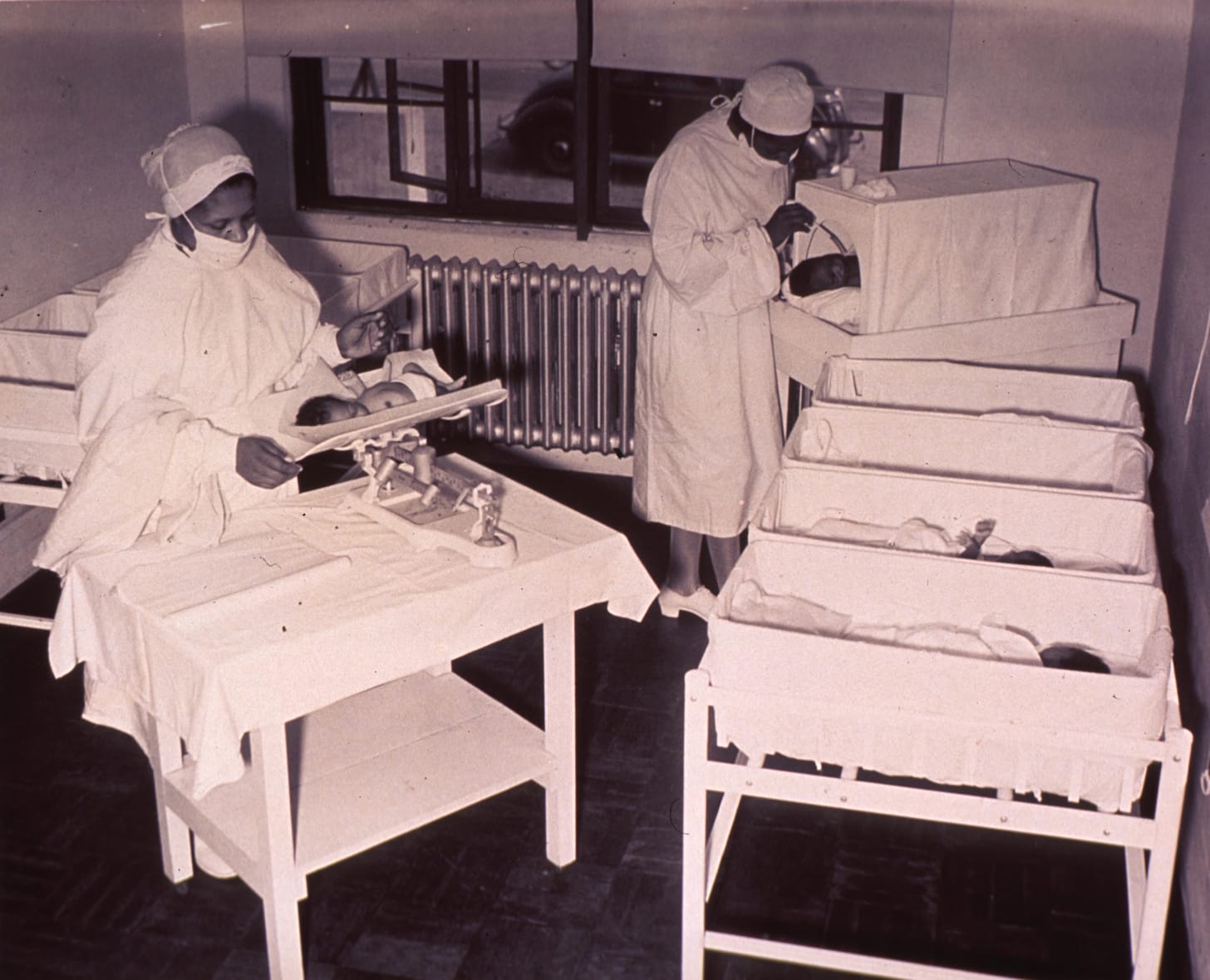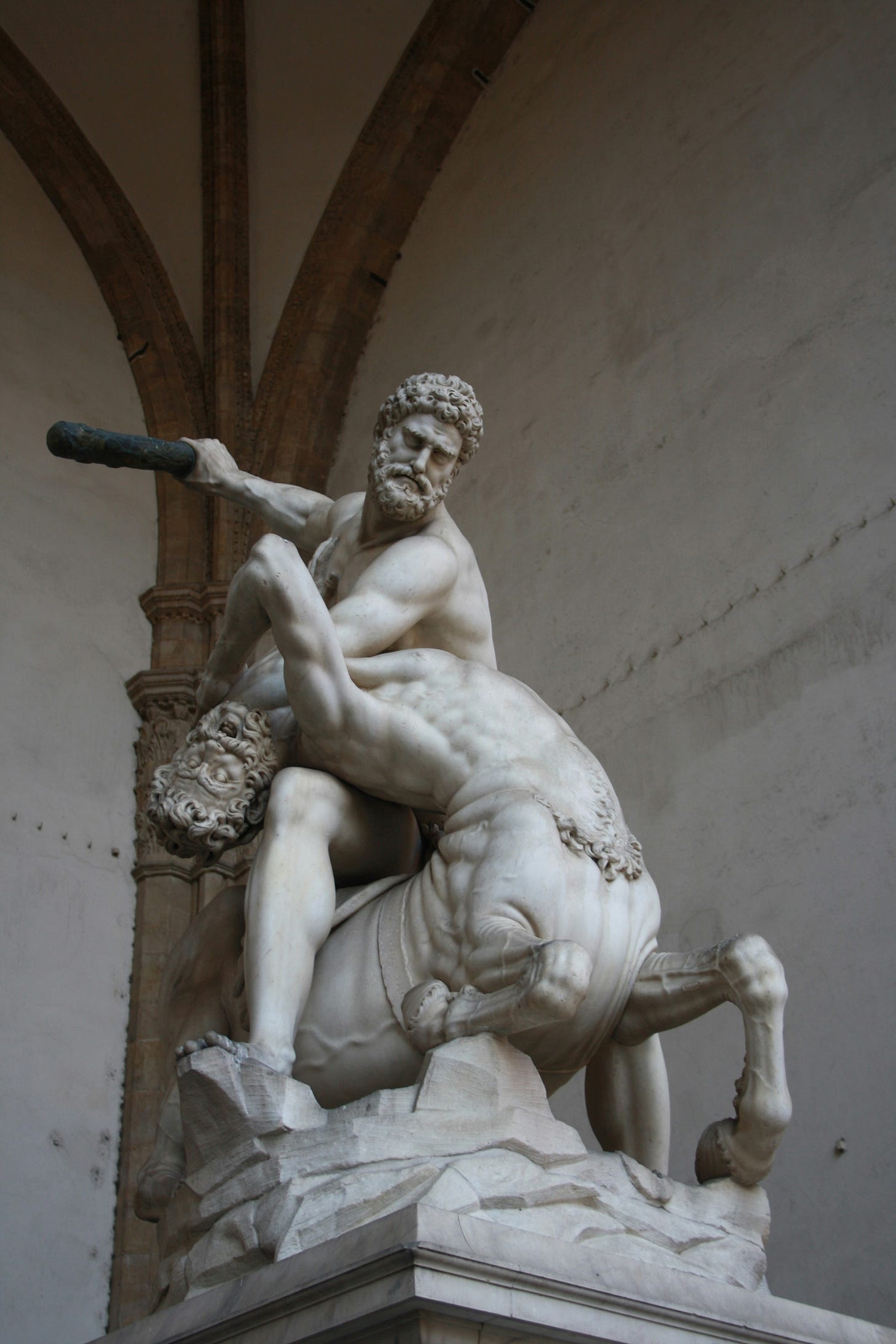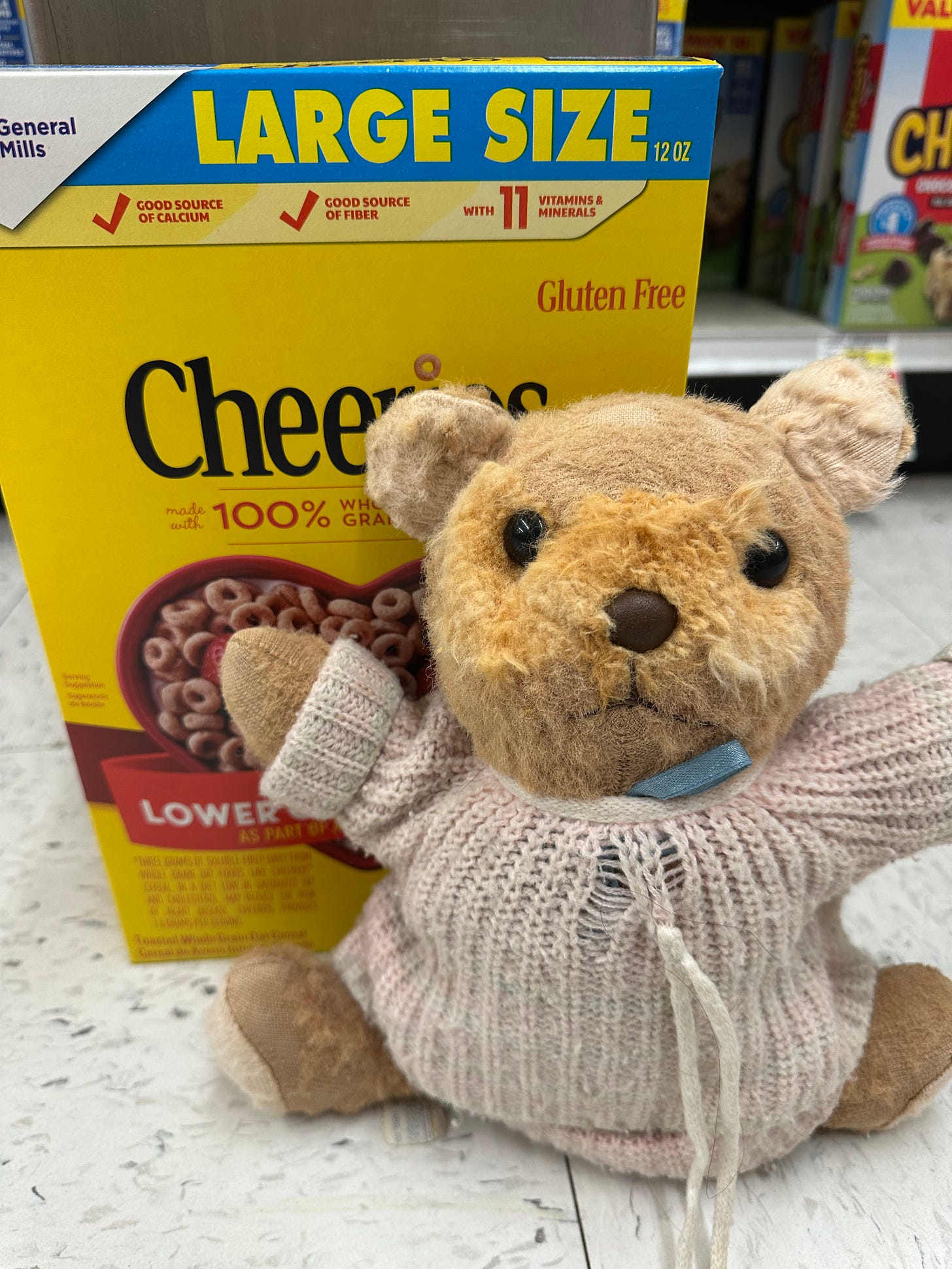
When I was six years old, I ran away from home with nothing but a box of Cheerios and my teddy bear. I had no plan, no destination—just the deep, wordless certainty that somewhere else must feel better than here.
Looking back, I’m struck by the sheer loneliness of that impulse. To risk the unknown as a solution to one’s pain speaks to a depth of aloneness that still shocks me. What kind of child believes, so young, that leaving is safer than staying? That belonging must exist, but elsewhere?
Of course, I didn’t get far. At six, the world is impossibly big, and eventually, the weight of my smallness sent me back home. But the longing that sent me out the door never fully disappeared. It shapeshifted as I grew, evolving into a persistent belief that I had been misfiled, that somewhere out there was the place, the people, the version of me that would finally fit.
I used to entertain the idea that I’d been switched at birth. That somewhere out there, in some sun-drenched home or eccentric artist’s loft, my real family was waiting for me—the ones who would understand my jokes, appreciate my oddities, and intuitively know how to love me in the way I needed. I wanted proof that I wasn’t just misplaced, but misfiled, that my real life had been mistakenly handed to someone else while I was living theirs.
Of course, I grew up and learned that this is a common fantasy, especially for those of us who have always felt slightly out of sync with our families, our cultures, even our own lives. The classic advice for this feeling is to “create a family of choice.” To seek out the people who understand us, to build a community where we feel seen. And while this can be beautiful, I’ve come to see that this advice—well-intentioned as it is—can sometimes feel like a kind of self-abandonment. Because no amount of present-day belonging can retroactively heal the child in us who wanted to feel loved and chosen by the people she came from. That longing—for the unconditional embrace of our original tribe—is the wound that never heals.
No amount of present-day belonging can retroactively heal the child in us who wanted to feel loved and chosen by the people she came from.
This week, I’m returning “home.” I used to think that my healing would be complete when I no longer felt the pang of wishing these visits were warm, loving, and connected. Each time that pang surfaced, an inner voice would scold: What’s wrong with me? Why does this still matter? Yet, in doing so, I was neglecting the very same child clutching her teddy bear, dismissing her pain with a brusque get over it—don’t cry.
But why shouldn’t she cry? Why shouldn’t this be a pain that never fully goes away? Expecting certain wounds to heal is like asking someone, “Are you still grieving a lost beloved?” Some wounds, perhaps, aren’t meant to heal.
The Myth of Chiron: Embracing the Unhealable
In Greek mythology, Chiron was a centaur renowned for his wisdom and healing abilities. Unlike other centaurs known for their wildness, Chiron was civilized and kind. However, he suffered a grievous, incurable wound after being accidentally struck by a poisoned arrow. Despite his vast knowledge of healing, he could not heal himself and endured immense pain.
This myth has often been interpreted to symbolize the archetype of the “wounded healer,” suggesting that those who have been wounded can, in turn, heal others. Perhaps, however, the deeper invitation of Chiron’s story is to recognize that some wounds cannot be fixed—and that’s okay. Instead of perpetually striving to heal the unhealable, there’s wisdom in accepting the wound, in learning to live with it, and in allowing it to transform us in ways that relentless healing efforts cannot.
The Gift of Being the Misfit
Lack of resonance with one’s tribe is hard. It can be lonely. But what if, instead of just seeing it as a loss, we also saw it as a function of something greater? What if nature intends for some of us to feel like outliers?
How static would the world be if each tribe stayed in its own silo of sameness? Maybe nature knows this, and it deliberately plants an interruptor into each tribe—someone with all the family’s recessive genes perhaps - not as a mistake, but as an act of evolution. Maybe those of us who feel like we were dropped into the wrong family weren’t misplaced at all. Maybe we were placed precisely where we were needed—to shake things up, to introduce new ways of being, to be the necessary friction that sparks transformation.
This is not a comforting thought when the wound is raw. When the misplaced child inside us is still searching for proof that she was wanted. But there’s something powerful in stepping back and asking: What if I wasn’t switched at birth? What if this exact life, this exact family, this exact path—flawed as it may be—was never a mistake?
Chiron’s story teaches us that some wounds are not meant to be healed but embraced. In accepting our unhealable wounds, we cease the endless striving to “fix” ourselves and begin to find meaning in our experiences. This acceptance can transform our perception of these wounds from sources of pain into catalysts for growth and understanding.
Maybe we were never meant to belong the way we thought we should. Maybe we were meant to be exactly who we are—wounds and all. And if the pain of not belonging ever gets too much - I’ve still got my trusty teddy bear and box of Cheerios.







Dear Sister~Friend..... Hoorah!!!! What a beautiful and uplifting conclusion!!!! I absabloominlutely loved this!!!!